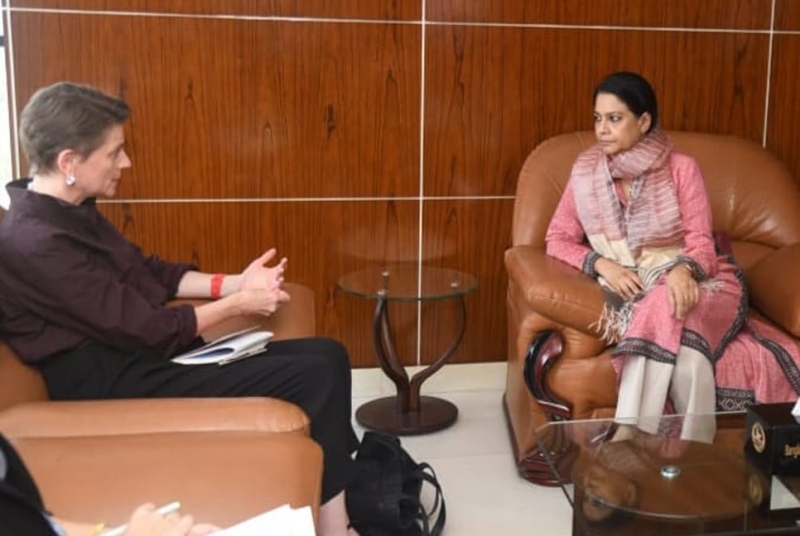- Intimidation or bloodshed cannot halt Bangladesh’s march to democracy |
- Khaleda Zia integral to an important chapter in BD history: Yunus |
- Enthusiasm marks Victory Day celebrations across Bangladesh |
- Dhaka-Delhi ties deep; to be shaped by trust, dignity, mutual respect |
- EU deploys election observation mission to Bangladesh |
Bangladesh Pushes Urgent Climate Action, Water Resilience Plan

Bangladesh is taking bold steps toward a more climate-resilient and water-secure future, following a high-level meeting between UN Resident Coordinator Gwyn Lewis and Environment Adviser Syeda Rizwana Hasan on Thursday.
Held at Pani Bhaban in Dhaka, the meeting focused on accelerating climate action and improving water governance, with both leaders emphasizing the urgency of moving from planning to execution.
“While analysis is important, it’s time to act—even if that means starting with just two or three catalytic projects,” said Adviser Rizwana Hasan, urging immediate implementation of tangible initiatives. She also proposed a dedicated coordination day for key development partners to streamline efforts across ministries and avoid missed opportunities.
The dialogue underscored the importance of ecosystem restoration—especially river rehabilitation—and called for a coordinated, inclusive approach to environmental governance. Rizwana highlighted plans for divisional river restoration drives, canal revitalization, and local-level implementation of the Delta Plan.
Civil society leaders have echoed the call for self-reliant climate action, reinforcing the need for transparency, grassroots participation, and institutionalized public hearings in development efforts.
Discussions also centered on leveraging the country’s Climate Prosperity Plan, the updated Nationally Determined Contributions (NDCs), and deeper collaboration with partners such as the Asian Development Bank, the European Union, and Sweden.
UN Coordinator Gwyn Lewis reaffirmed the United Nations’ commitment to supporting Bangladesh through integrated planning, technical assistance, and mobilizing financial resources. She praised Bangladesh’s leadership and called for greater alignment between national policies, local actions, and global climate objectives.
Both sides acknowledged the barriers posed by fragmented institutional frameworks and agreed on the urgent need to reactivate platforms like the Environment Community of Practice, dormant for nearly a decade. They also stressed the importance of improving infrastructure—both physical and institutional—to foster effective inter-agency collaboration.
The meeting concluded with a strong joint commitment to transform climate strategies into concrete actions, marking a decisive step toward sustainable, inclusive, and innovative environmental governance in Bangladesh.

